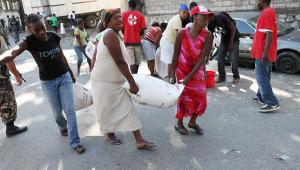By Judith Ugwumadu | 20 January 2014
Europe’s financial crisis response, as directed by the ‘troika’, needs greater democratic accountability and the ability to revise policy recommendations when they prove to be detrimental, European Union lawmakers have said.
The troika of the European Commission, European Central Bank and International Monetary Fund, provided bail-out funds to crisis-hit member states in return for economic and financial reforms.
However, MEPs on the Economic and Monetary Affairs Committee last week suggested that the crisis-management mechanism could be brought within the mainstream of EU policy-making.
Othmar Karas, one the committee’s rapporteurs, noted that the EU had been ‘caught on the wrong foot’ when the crisis hit and had lacked both the financial means and the expertise to handle the struggling countries. While there may have been no alternative to the troika at that time, ‘we now have the funds and systems to control national budgets so we must get the system within the normal EU process’, he said.
Karas’s co-rapporteur Liem Hoang Ngoc said the role of the European Stability Mechanism, the EU’s own bail-out fund, needed to be stepped up, while the European Parliament should have a bigger in-put in decisions, particularly those that attach ‘conditionality’ to financial assistance.
‘Disputes between the commission and the IMF over whether to use fiscal consolidation or devaluation led to both having been applied, causing excessive damage,’ he noted.
The comments were made during a discussion on a draft report that analysed the operations of the troika.
Portuguese MEP Marisa Matias said the troika needed to be able to revise its recommendations when they were shown not to be working. She added that any alternative model of intervention should not be based solely on austerity.
‘Social considerations must be factored in and the policy of making ordinary people pay the most of the bill must be changed,’ she said.
Earlier this month, MEPs on the social affairs committee criticised troika policies for contributing to high unemployment and weakened employment rights.













